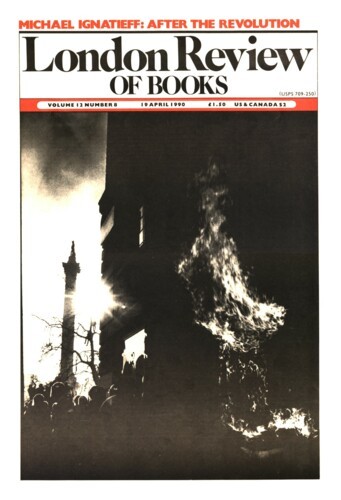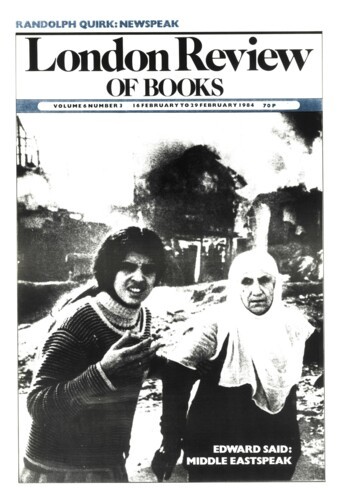Odds and Ends
Alan Donagan, 19 April 1990
Jeffrey Stout’s Ethics after Babel is, in his own phrase, a ‘philosophy of moral diversity’ – of the sheer foreignness to some people and societies of the moral thinking of some other people and some other societies. Once satisfied that moral diversity is a fact, many philosophers despair of ethics: becoming either moral sceptics, and doubting that true answers to questions about right and wrong can be found by taking thought, or moral nihilists, and denying that moral questions have true answers. Others like Plato, conclude that ethics remains possible, but only by rising above human moral diversity to ‘a God’s-eye view’ of right and wrong. Stout’s point of departure is that to aspire to such a view is vain: it is the ancient sin symbolised as the building of the Tower of Babel. Yet he does not despair. Clearing Babel-like projects out of the way, he directs us to what, in his mind, is an acceptable alternative to them.’


